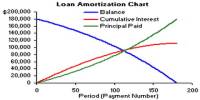Inheritance tax, also known as estate tax or death tax, is a tax that is levied on the value of property or assets that are transferred to beneficiaries upon the death of the owner. It is a tax paid by a person who inherits money or property from a deceased person, whereas an estate tax is a levy on the estate (money and property) of a deceased person. The tax is based on the total value of the deceased person’s estate, which includes all their assets such as real estate, investments, bank accounts, personal property, and any other possessions.
The rate of inheritance tax varies depending on the country or state in which it is levied, as well as the total value of the estate. In some countries, there may be exemptions or deductions for certain types of assets or for certain beneficiaries, such as spouses or children.
International tax law distinguishes between an estate tax and an inheritance tax—an estate tax is levied on the deceased’s assets, whereas an inheritance tax is levied on the legacies received by the estate’s beneficiaries. However, this distinction is not always observed; for example, the UK’s “inheritance tax” is a tax on the deceased’s assets, and thus strictly speaking is an estate tax.
Inheritance tax laws and rates vary widely between different countries and even within different states of the same country. Some countries have very high rates of inheritance tax, while others have none at all. In some countries, there are exemptions and reliefs available to reduce the amount of tax owed, such as exemptions for small estates or for certain types of assets, like a family home or business.
The term “death duty” is still used colloquially (though not legally) in the United Kingdom and some Commonwealth countries for historical reasons. In the United States, the term death tax is sometimes used to refer to estate tax for political, statutory, and other reasons.
Purpose
The purpose of inheritance tax is to generate revenue for the government and to prevent the accumulation of wealth in a few families over generations. Proponents argue that it is a fair way to ensure that everyone contributes to society’s needs, while opponents argue that it is a form of double taxation, as the assets have already been taxed during the owner’s lifetime.
It is important for individuals to plan their estates and consider the potential impact of inheritance tax on their heirs and beneficiaries. Estate planning can help to minimize the tax liability and ensure that assets are distributed according to the wishes of the deceased person.
It is important to note that inheritance tax laws can be complex and may change over time, so it is advisable to seek professional advice when planning your estate to minimize the tax burden on your heirs.
















